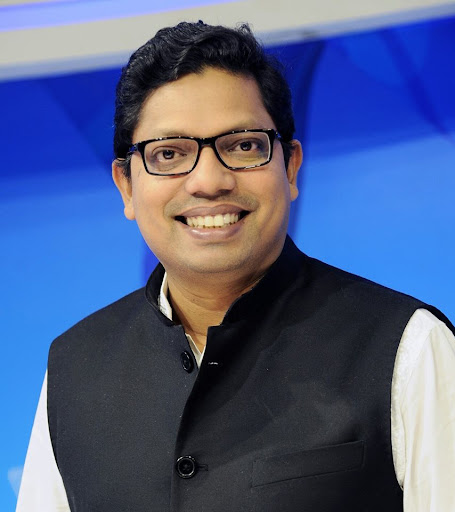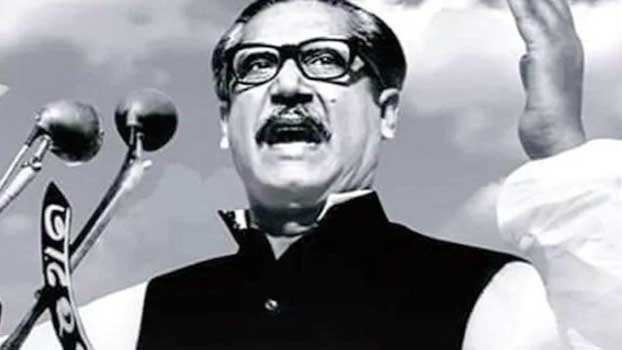Love, peace and freedom: Philosophy of Bangabandhu
Bangabandhu was the greatest politician and philosopher the world has ever produced


Father of the Nation Bangabandhu Sheikh Mujibur Rahman spent most of his life in politics outside state power. He struggled against colonial and undemocratic regimes- first against the British for nearly seven years and later against the Pakistan for 24 years to establish the economic, political and cultural rights of the Bengalees. If we look into his long arduous struggles and three and half years rule in independent Bangladesh we find that he emerges as an exceptional figure to shape the lives of Bengalees and others, transforming the world into a better place. Bangabandhu had a few specific political ideals and goals and he worked consistently to achieve them. Though his accomplishments he presented before us and for the world a philosophy of love, peace and freedom.
In my opinion Bangabandhu was the greatest politician and philosopher the world has ever produced. He acquired his philosophical belief from his love for the people and the country, unusual courage, honesty and sincerity, peace and freedom. He has his own philosophy. He did not follow Marxist or Maoist philosophy to bring about a socio-political change. Bangabandhu declared that he would not import socialism of typical type from other countries but he would form a socialist society keeping democracy, social justice and people’s right undisturbed. The aim was to transform the society by establishing socialism in a democratic way and make it functional.
At the core of Bangabandhu’s philosophy was the love for the people. He became the conscience of humanity. He asserted the right of the common people to live with and respect. Bangabandhu has written: “As a man, what concerns mankind concerns me. As a Bengalee, I am deeply involved in all that concerns Bengalees. This abiding involvement is born of and nourish by love, enduring love, which gives meaning to my politics and to my very being.” This quote makes it clear that Bangabandhu identified himself both as a human being and as a Bengalee. This self-identification helps us explore the main features of Bangabandhu’s philosophy, such as love, peace and freedom.
Bangabandhu had an enormity of love for his people and the country. His people were dear to him. It was his people who were his strength and source of power. His biggest weakness was also his love for people. In reply to question of British TV journalist David Frost-- `What is your strength and weakness’ during an interview on 18 January 1972 Bangabandhu said, “My greatest strength is the love for my people, my greatest weakness is that I love them too much.”
Frost asked ‘When you see them digging a grave and you think of everything you have to leave behind you, do you think of your country, or for instance of your wife and children first?’ In reply Bangabandhu said, “I feel for my country and my people and then my family. I love my people more. I suffered for my people and you have seen how many people love me.”
Bangabandhu always stood by the poor people. He was involved in social and political movements, such as the movement of the poor peasants against introduction of Jinnah Fund, prohibiting inter-district trade in rice known as the `cordon’ system. He supported the movement of the fourth class employees of Dhaka university and was imprisonment in 1949.
Bangabandhu throughout his whole life was involved in politics and movement and talked about people’s emancipation from exploitation and oppression. But he never deviates from his stance of peaceful non-violent movements. He transformed the Bengali nationalist movement into a movement for independence following the democratic norms and culture from 1947 to 1970. The movement turns into an armed struggle in March 1971 at a time when Pakistani military junta government did not hand over power to majority party Awami League that secured absolute majority in 1970 election.
Bangabandhu practiced honesty throughout his whole life. He was honest of the purpose of emancipating people and this lesson he has got from his family. His father Sheikh Lutfar Rahman has said, “If you don’t study you won’t become a good human being. And one other thing: if you have sincerity of purpose and honesty of purpose you will never be defeated.”(The Unfinished Memoirs, Page 22). Bangabandhu never forget these words of advice.
Bangabandhu believed in peace and harmony and equal rights of citizens. Though he was involved in the Pakistan movement he believed that in India, Muslims and in Pakistan, Hindus should enjoy equal rights as citizens and live together in peace and harmony. Bangabandhu saved both Muslims and Hindus from acts of communal riots that did break out in Kolkata on 16 August 1947. He along with Huseyn Shahid Suhrawardy actively participated in efforts of Mahatma Gandhi to bring back peace and communal harmony.
Bangabandhu not only thought about Bangladesh or regional peace, he was for global peace and against race of nuclear weapon and nuclear war. His speech in the 29 UNs General Assembly (UNGA) on 25 September 1974 ushered in fresh ideas and policies to build a brave new world free of economic inequalities, social injustice, military aggression and threats of the nuclear war. He said `Peace is absolutely necessary for the protection of the existence of mankind. The hopes and aspirations of all men and women in world are embodied in this peace. Peace can never be sustainable if not based on justice.’
Bangabandhu was a visionary leader. He thought that Bangladesh must have to adopt science and technology to help expedite of building poverty-free, happy and prosperous Shonar Bangla (Golden Bengal). He did not even forget to seek international cooperation and partnership in resources and technology to alleviate people’s sufferings at the UNGA. He said “There is no room for doubt at all that international cooperation and partnership in resources and technology can facilitate our task, can alleviate people’s sufferings. However, the emerging countries like ours should have confidence in their own efficiency. It should be kept in mind that only through the united and concerted effort of the people, we can be able to reach our specific goal, can build a better future.” “This future will be free from the threats of nuclear war. By the equitable distribution of all the wealth and technical knowledge of the world, the door to such welfare can be opened where everyone will have the minimum assurance of a happy and honest life,” he said.
The conspirators have killed such a great leader and best Bengali of all time Bangabandhu who fought for the cause of people and brought independence. But they could not erase his name. His philosophy and ideology are with us. A person could be an ideal man if he followed his philosophy and ideology. The freedom-loving people can get the taste of freedom if they follow the philosophy of Bangabandhu.
Zunaid Ahmed Palak is a Member of Parliament and Minister of State for the ICT Division.



